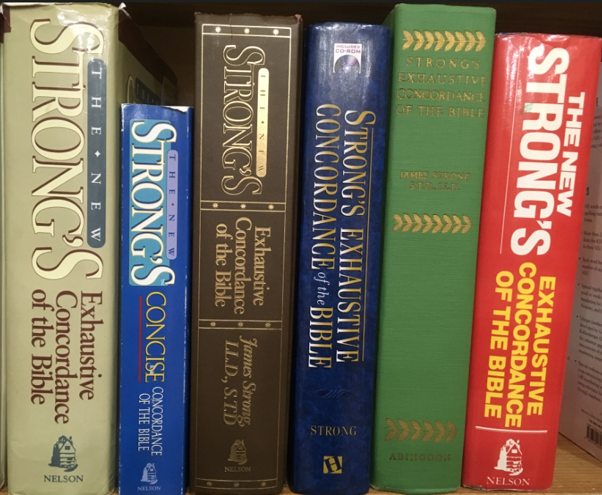A Guide to Not Using Strong’s Concordance
Asher Chee |
Strong’s Concordance is often used as if it were a dictionary, to find out the meaning of a Hebrew/Greek word in the Bible. A person might say, “According to Strong’s Concordance, this Hebrew/Greek word means...”
Misleading Dictionary
What many people usually mean by “Strong’s Concordance” is actually the dictionary at the back of a physical copy of Strong’s Concordance. This dictionary lists several possible meanings of a Hebrew or Greek word. For example, here is the entry for the Hebrew word ḥāṭāʾ:
2398. חָטָא châṭâʼ, khaw-taw'; a prim. root; prop. to miss; hence (fig. and gen.) to sin; by inf. to forfeit, lack, expiate, repent, (causat.) lead astray, condemn:—bear the blame, cleanse, commit (sin), by fault, harm he hath done, loss, miss, (make) offend (-er), offer for sin, purge, purify (self), make reconciliation, (cause, make) sin (-ful, -ness), trespass.
Many people, when looking at such a dictionary entry, make the mistake of thinking that the Hebrew/Greek word always has all these meanings. They might say, “Wow, this Hebrew/Greek word is so rich! It has so much meaning packed into it!”
However, this does not make sense. How can a word mean “to sin” and “to expiate” (to cleanse from sin) at the same time? Of course it does not. Rather, the meaning of a Hebrew/Greek word depends on several factors. For example, this verb, ḥāṭāʾ, means “to sin” in the Qal construction, but in the Piʿēl construction, it means “to expiate”. However, this information is not available in the dictionary of Strong’s Concordance.
Mistaken Definitions
Furthermore, the dictionary of Strong’s Concordance provides mistaken definitions for many Hebrew and Greek words. This is because many of these definitions are derived using improper word study methodologies. Some examples include:
- The etymological fallacy. Assuming that the meaning of a word is determined by its historical origins. For example, the English word nice used to mean “stupid” in older English, and it comes ultimately from the Latin word nescius, meaning “ignorant”. However, today, the word “nice” does not mean that a person is stupid or ignorant.
- The root fallacy. Assuming that the meaning of a compound word is determined by the meanings of its component parts. For example, the word butterfly does not mean “flying butter” just because it is made up of the words butter and fly, and the word understand does not mean “to stand under something” just because it is made up of the words under and stand.
This means that the dictionary of Strong’s Concordance is not a reliable resource for learning the meaning of Hebrew/Greek words. Instead, it is advised that one uses proper Hebrew/Greek dictionaries which are based on the latest research and advances in knowledge.
Recommended Proper Dictionaries
Here are two of the best freely-available dictionaries that can be used for the study of words in biblical languages:
- Brown–Driver–Briggs Lexicon (Hebrew & Aramaic)
- Thayer’s Lexicon (Greek)
For those who can afford it, here are the best and standard lexica used in scholarly research:

